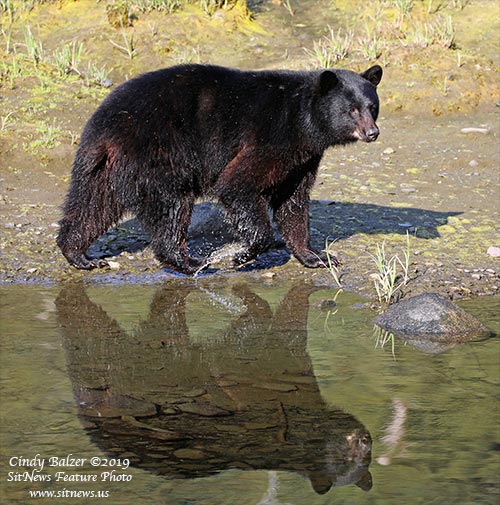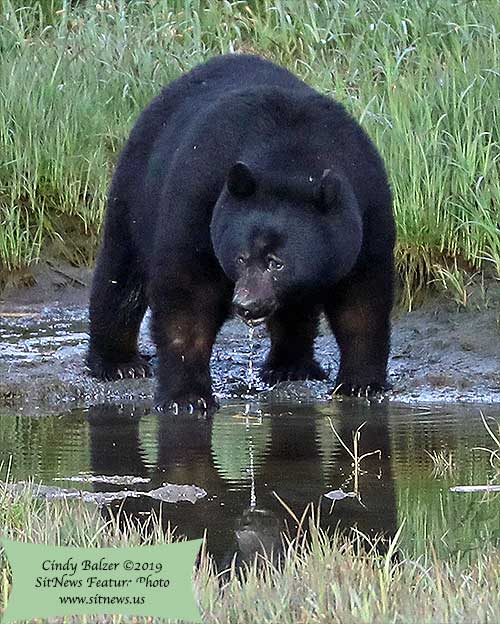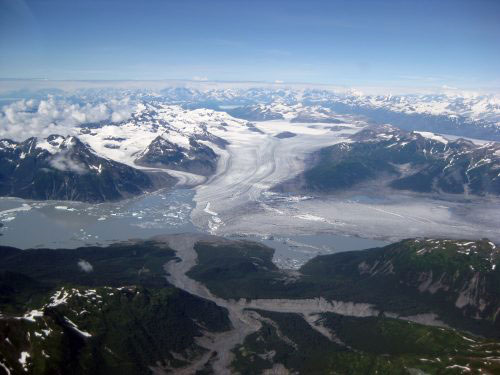






Weekly Specials
Online Shopping; Pickup or Delivery |
|












 Contact Contact 
 Webmail
Letters Webmail
Letters
 News Tips News Tips
 Copyright Info Copyright Info
 Archives Archives
Quick News
Search
 Alaska Alaska
 Ketchikan Ketchikan
 SE Alaska SE Alaska
Columns
- Articles
 Dave Kiffer Dave Kiffer
 Money Matters Money Matters
Historical
Ketchikan
 June Allen June Allen
 Dave
Kiffer Dave
Kiffer
 Louise
B. Harrington Louise
B. Harrington
Sports
 Ketchikan Links Ketchikan Links
Public Records
 FAA Accident Reports FAA Accident Reports
 NTSB
Accident Reports NTSB
Accident Reports
 Court Calendar Court Calendar
 Recent Filings & Case Dispositions Recent Filings & Case Dispositions
 Court Records Search Court Records Search
 Sex Offender Reg. Sex Offender Reg.
 Public Notices Public Notices
 Alaska Recall Alerts Alaska Recall Alerts
 Recalls.gov Recalls.gov
 AST Daily Dispatch AST Daily Dispatch
 KTN
Police Reports KTN
Police Reports
 Juneau Police Reports Juneau Police Reports
Weather,
Webcams
 Today's
Forecast Today's
Forecast
 KTN
Weather Data KTN
Weather Data
 AK
Weather Map AK
Weather Map
 AK Weathercams AK Weathercams
 AK Earthquakes AK Earthquakes

|
|

Saturday
June 01, 2019

Bear Reflection
Front Page Feature Photo By CINDY BALZER ©2019
|
KETCHIKAN: NTSB Releases Metlakatla May 20th Crash Preliminary Report.
NTSB - May 31, 2019
GAVEL ALASKA: Live coverage of the Alaska legislature, including committee meetings, Alaska senate and house floor sessions, press conferences and other legislative events. In addition, oral arguments before the Alaska Supreme Court are covered, administration press conferences and briefings, general government activities, and other meetings about legislative issues or of political interest.Watch Live or Watch Archives 360North.org
Alaska Legislature - Schedule, live meetings, archived videos, documents. - Click here...
Ketchikan: Public Meetings
Ketchikan: Upcoming Events
Historical
Ketchikan
 June Allen June Allen
 Dave
Kiffer Dave
Kiffer
 Louise
B. Harrington Louise
B. Harrington
Ketchikan Weather
 Ketchikan's
Forecast Ketchikan's
Forecast
 May: Daily Records 2019 May: Daily Records 2019
 Ketchikan April 2019 Data Ketchikan April 2019 Data
 Ketchikan March 2019 Data Ketchikan March 2019 Data
 Ketchikan Feb. 2019 Data Ketchikan Feb. 2019 Data
 Ketchikan Jan. 2019 Data Ketchikan Jan. 2019 Data
 Nat Weather Service KTN Nat Weather Service KTN
 Ketchikan Tides & Currents Ketchikan Tides & Currents
 Sunrise - Sunset Ketchikan Sunrise - Sunset Ketchikan
Search the News
 Ketchikan Ketchikan
 Alaska Alaska
|
Alaska: Governor Warns Key Departments Facing Significant Budget Shortfalls By MARY KAUFFMAN - Governor Michael Dunleavy recently sent a letter to the Alaska Senate and House Finance Committee chairs informing them that key departments within the State of Alaska will be realizing significant FY19 Budget shortfalls if the Legislature does not pass a budget. In his letter, the governor wrote that these shortfalls will have an impact on the operations of each department he listed or will pose a legal risk of funding.
According to the letter, dated May 23, the governor writes that funds for the Alaska Department of Education and Early Development's Title I and School Improvement Grants, the Department of Correction's Inmate Health Care, Health & Social Services' Medicaid and Health Care Services and the Alaska Psychiatric Institute are all about to run short of money. Also listed was the Department of Public Safety's Alaska State Troopers Personal Services.
Each of the line items, according to the governor's letter, were submitted to the Legislature through the supplemental appropriation process as necessary items to address and prevent a reduction in services, and in at least one case to eliminate a risk to life, health, and safety issues of patients and staff at the Alaska Psychiatric Institute.
"Had the Legislature been able to conclude work on HB 39 prior to the end of the first regular session, the supplemental appropriations would have been authorized, thus avoiding the short-fall situation that the departments now find themselves in," Gov. Dunleavy said.
Dunleavy wrote in his letter that there is no alternative to fund these items through the remainder of fiscal year 2019.
"I am requesting the the Conference Committee on HB 39 conclude their work in a timely manner and issue a report to each body to approve," wrote Governor Dunleavy.
The governor added that the Department of Law, the Office of Management and Budget, and the Department of Administration have begun steps to address the shortfalls if the Legislature does not pass a budget in time to rectify the lack of funding.
The Legislature is required by law to pass a budget by June 30 each year.
On May 22nd, the day before the Governor sent his lette to the Alaska Senate and House Finance Committee chairs alerting them of shortfalls, Rep. Colleen Sullivan- Leonard (R-Wasilla) said in a news release that the threat of pink slips is now closer to a reality for Alaska’s teachers due to inaction by the House Finance Committee to fully fund education. - More...
Saturday AM - June 01, 2019
Alaska: U.S. Supreme Court rules in favor of Alaska Troopers lawful actions By MARY KAUFFMAN - The U.S. Supreme Court in Nieves v. Bartlett held that a plaintiff suing his arresting officers on the theory that they arrested him in retaliation for his First Amendment speech cannot prevail if the officers had probable cause to arrest.
As a result of the Court’s decision, a lawsuit against two Alaska State Troopers who had arrested a man for disorderly conduct at the Arctic Man festival must be dismissed.
Alaska Attorney General Kevin G. Clarkson made the following comment following the Supreme Court’s decision: "The U.S. Supreme Court has clarified that a lawful arrest protects a police officer from an unnecessary lawsuit. This is a great decision for law enforcement officers across over the nation."
This case stems from an incident that occurred at Alaska's Arctic Man festival in 2014 held in the remote Hoodoo Mountains near Paxson, Alaska. Russell Bartlett, the plaintiff, was arrested by two Alaska state troopers Luis Nieves and Bryce Weight for disorderly conduct and resisting arrest during "Arctic Man," a raucous winter sports festival held in a remote part of Alaska. - More...
Saturday AM - June 01, 2019
Alaska: Representatives urge administration to reject steep Pioneer Home rate increases - Nineteen members of the Alaska House of Representatives signed a letter to Health Commissioner Adam Crum and Pioneer Home Director Clinton Lasley urging the Alaska Department of Health and Social Services to reevaluate the Dunleavy Administration’s proposed rate increases.
In the letter, the representatives suggest using House Bill 96 as a guideline for changes made to the Pioneer Home rates. The bill provides a structure for reasonable, regular rate increases in order to keep pace with the cost of care. It uses the Social Security Cost of Living Adjustment as a benchmark.
“HB96 passed the House with broad support, after immense research and discussion during the legislative process. It is a strong guideline moving forward,” said Rep. Dan Ortiz (I-Ketchikan). “We made a commitment to provide for our aging population, and we are standing by that.”
The department also held public testimony at Pioneer Homes across the state on Tuesday to gather input on the proposed rate increases. Quoting a news release from the Alaska House Majority, Alaskans yet again spoke strongly in opposition to the steep rate increases. - More...
Saturday AM - June 01, 2019
|

Ketchikan: Big Bear
Big Bear drinking water in the Herring Cove area. This is a surprisingly big bear to emerge after hibernation. Snacking during the winter maybe. According to the Alaska Department of Fish & Game, an estimated 100,000 black bears inhabit Alaska.
Front Page Feature Photo By CINDY BALZER ©2019 |
| Fish Factor: More Turning to Seaweed Farming; Shrimp Shines in Southeast... By LAINE WELCH - More Alaskans are turning to seaweed farming as the state’s fledgling mariculture industry expands to more regions. Shellfish growers also are finding that an oyster/aquatic plant combo boosts their bottom line.
Sixteen applications were filed for new or expanding aquatic farms during the January through April time frame, of which 56 percent were for growing various kelp, 31 percent for a combination of Pacific oysters and kelp, and 13 percent for oysters only.
While it was the same number of applications as 2018, the underwater acreage increased considerably, said Cynthia Pring-Ham, aquatic farming coordinator at the Alaska Dept. of Fish and Game which issues the farm permits.
“There were about 616 acres that were applied for in 2019 compared to 462 acres in 2018. That’s about a 33 percent increase,” she said, adding that ADF&G partners with the Dept. of Natural Resources which leases the tidal and submerged lands where aquatic farming takes place.
For the first time, interest came from a westward region beyond Kodiak.
“In 2019 we had our first applications from the Alaska Peninsula, two from Sand Point and for kelp species,” said Pring-Ham. “It’s difficult for bivalves in that area to grow successfully, so maybe that will be a new avenue for people. We are very excited.”
Two Kodiak growers pioneered kelp farming in Alaska by getting the first state permits in 2016. A mixed sugar and ribbon kelp harvest of 16,000 pounds followed in 2017; that jumped to to nearly 90,000 pounds in 2018, valued at $33,000.
Currently in Alaska there are 58 aquatic farms, 5 hatcheries and 7 nurseries operating, with most involved in oyster production at Kachemak Bay, Southeast and Prince William Sound. In 2017, 41 operators produced a crop of nearly two million Pacific oysters, valued at $1.53 million.
Pring-Ham said Alaska oyster farmers are finding that fast growing kelp can boost their bottom lines.
“The major species people are growing can be grown in a very short amount of time. They put them out in the fall and can harvest in the spring. So in four to six months they can have a product ready for market, which is a lot shorter than for shellfish like our Pacific oysters which can take two to four years,” she said, adding that aquatic plants also provide opportunities for more people in fishing communities.
The global commercial seaweed market is projected to top $22 billion by 2024, with human consumption as the largest segment.
Besides kelp, 21 of Alaska’s aqua-farmers also have added dulce, nori and sea lettuce to their macroalgae or shellfish menus. Other undersea crops being grown in Alaska include urchins, sea cucumbers, mussels and giant geoduck clams.
Shrimp shines in the Panhandle:
Southeast Alaska is the state’s biggest producer of America’s #1 seafood favorite: shrimp. And much of it is enjoyed right where it’s landed.
Four varieties of shrimp are taken at various times throughout the year by permit holders, with recent catches topping 1.5 million pounds, worth $3 million at the docks.
“We have 19 different areas around Southeast and each has its own appropriate harvest level for sustainability,” said Dave Harris, area manager for the Alaska Department of Fish and Game in Juneau. - More...
Saturday AM - June 01, 2019
|
|
Alaska: Elevated West Coast gray whale strandings declared an Unusual Mortality Event; NOAA Fisheries confirms fifth dead gray whale in Alaska - Yesterday, NOAA Fisheries declared the elevated rate of gray whale strandings on the West Coast in 2019 an Unusual Mortality Event (UME), triggering a scientific investigation into the cause.
Under the Marine Mammal Protection Act, an unusual mortality event (UME) is defined as "a stranding that is unexpected; involves a significant die-off of any marine mammal population; and demands immediate response."
As of May 31, about 70 gray whales have stranded on the coasts of California, Oregon, Washington and Alaska so far this year, the most since 2000, when more than 100 whales stranded in what was also determined to be a Unusual Mortality Event. British Columbia and Mexico have also recorded gray whale strandings. The eastern North Pacific gray whale population that migrates along the Pacific Coast was last estimated at about 27,000 animals.
On May 28, 2019, NOAA Fisheries received a report of a dead gray whale in Chignik Bay, a community on the southern side of the Alaska Peninsula.
The whale was first observed alive in an unusual location under the community's dock. It was then observed dead on May 25, and towed to a beach away from town due to concerns about attracting bears. NOAA Fisheries reported they are attempting to gather more information and coordinate with community members to secure the carcass and, if possible, conduct a necropsy to collect samples, measurements, and ascertain cause of death.
This is Alaska's 5th confirmed dead gray whale in 2019. Alaska typically sees between 0-3 gray whale strandings from the first of January to the end of May, based on the past 18 years. In 2000, the number in the January-May timeframe was 18. - More...
Saturday AM - June 01, 2019
Alaska: Mass die-off of puffins recorded in the Bering Sea; Climate-induced food shifts may be to blame - A mass die-off of seabirds in the Bering Sea may be partially attributable to climate change, according to a new study publishing May 29, 2019 in the open-access journal PLOS ONE by Timothy Jones of the citizen science program COASST at University of Washington, Lauren Divine from the Aleut Community of St Paul Island Ecosystem Conservation Office, and colleagues. The birds appeared to have died from the effects of starvation.
Tufted puffins breeding in the Bering Sea, off the coast of Alaska, feed on fish and marine invertebrates, which in turn feed on ocean plankton. Elevation of sea temperatures has led to major changes in ocean ecosystems, and has been linked to previous mass mortality events in marine birds. Beginning in 2014, increased atmospheric temperatures and decreased winter sea ice led to declines in energy-rich prey species in the Bering Sea, as well as a shift of some species more northward, diminishing puffin food resources in the southern portion of the sea.
In the current study, Jones and colleagues documented a four-month-long die-off of puffins and a second species, the Crested auklet, on St. Paul Island, one of the Pribilof Islands in the southern Bering Sea, about 300 miles east of the mainland. Beginning in October 2016, tribal and community members recovered over 350 severely emaciated carcasses, mostly adults in the process of molting, a known nutritional stressor during the avian life cycle. A reduction in food resources before entering molt may have prevented many birds from surviving, the authors suggest. Using wind data to model beachings, they calculated between 3,150 and 8,500 birds could have died in the event. Tufted puffins comprised 87% of this total, or 40-100% of the Pribilofs Islands' population, making it highly likely that affected birds originated from colonies throughout the Bering Sea. In comparison, puffins have made up less than 1% of recovered carcasses in the region in prior years. - More...
Saturday AM - June 01, 2019 |
Alaska: How many Alaska glaciers? There’s no easy answer By NED ROZELL - Not long ago, a glaciologist wrote that the number of glaciers in Alaska “is estimated at (greater than) 100,000.” That fuzzy number, maybe written in passive voice for a reason, might be correct. But it depends upon how you count.
Another glaciologist saw an example of the confusion when he visited Yakutat Glacier. Yakutat, near the Alaska town of the same name, is a withering glacier that calves into a deep lake of its own making. As it dies, Yakutat Glacier will increase the number of glaciers in Alaska. And it won’t be long, said Martin Truffer of the Geophysical Institute at the University of Alaska Fairbanks.
Truffer spent time at the glacier and noted it was melting so fast, it would soon become at least three smaller glaciers.
“You get into that paradoxical situation where a glacier is retreating and you get more glaciers,” Truffer said.
His colleague Regine Hock pointed out a similar situation when pondering a request from a magazine reporter on the number of Alaska glaciers.
“Because of climate warming, the number of glaciers in Germany has increased over the last decades by several hundred percent,” she wrote in an email. “There were less than a handful of glaciers in the 1990s; now there are more because these two have fallen apart into mini glaciers.”
A problem in counting Alaska’s glaciers arises in the variety of ways people have named them over the years.
“In Bagley Icefield, it’s really crazy,” Truffer said, referring to a mass of ice where the Southeast panhandle meets the rest of Alaska. “There’s all these different names. Where you separate them, that’s a subjective choice.” - More...
Saturday AM - June 01, 2019
Alaska: “Booster Gary” Sentenced to Federal Prison for Stealing Woolly Mammoth Tusk from Alaska's Campbell Creek Science Center - U.S. Attorney Bryan Schroder announced that a Wasilla man has been sentenced to federal prison after he and a co-conspirator stole a fossilized woolly mammoth tusk from an Anchorage Bureau of Land museum, and then cut the tusk into pieces and sold them for profit.
Gary Lynn Boyd, 41, of Wasilla, was sentenced Wednesday by U.S. District Judge Sharon L. Gleason, to serve 33 months in federal prison after having pleaded guilty to one count of removal of a paleontological resource. After his sentence is served, Boyd will be on supervised release for three years. In addition to the standard conditions of release, Boyd will not be permitted to visit National Parks, National Forests, or BLM land without permission of his probation officer. Boyd was also ordered to pay $8,385.82 in restitution to the Campbell Creek Science Center.
According to court documents, Boyd and his co-conspirator, Martin Thornley Elze, stole a mammoth tusk, which is an irreplaceable paleontological resource that had been displayed at the Campbell Creek Science Center (CCSC), a BLM museum, for approximately 20 years.
Specifically, on March 7, 2018, Boyd and Elze targeted the tusk in advance by visiting the CCSC and asked the staff specific questions about the weight and authenticity of the tusk. Boyd and Elze returned to CCSC the next night, on March 8, 2018, when it was closed. Boyd used a rock to break a window, causing $1,385.22 in damage, to unlawfully open a door at the CCSC. After Boyd removed the tusk from the CCSC, he and Elze worked together to carry away the tusk, which was caught on the museum’s video surveillance system.
The investigation revealed that Boyd and Elze cut the mammoth tusk into pieces and sold them for profit. As such, the mammoth tusk was never returned to the BLM. According to court documents, when the tusk was in its original condition, prior to being plundered and cleaved, it was worth approximately $7,000 to $9,000. - More...
Saturday AM - June 01, 2019
Alaska: Man Sentenced to Serve 46 Years for Sexually Abusing and Taking a Nude Photograph of a 13 Year Old - On Tuesday, May 28, 2019, pro tem Alaska Superior Court Judge Jack Smith sentenced 40-year-old Richard Abrahamson of Anchorage to a total of 46 years in prison for sexually abusing a 13-year-old boy.
Abrahamson’s sentence followed his conviction after a three-week jury trial in January 2019 for three counts of sexual abuse of a minor in the first degree, three counts of sexual abuse of a minor in the second degree, three counts of sexual abuse of a minor in the third degree and one count of unlawful exploitation of a minor.
In April 2016, a 13-year old Anchorage child disclosed to his mother that Abrahamson had sexually abused him on two occasions while acting as the minor’s babysitter. The victim reported that Abrahamson had also taken a nude photograph of the boy during the sexual abuse. - More...
Saturday AM - June 01, 2019 |
 |
Money Matters: WHAT IF YOU OUTLIVE YOUR MONEY? By MARY LYNNE DAHL, CFP® - According to surveys conducted during 2018, the most common financial worry among American adults is that they might outlive their money. Financial Advisor magazine’s survey, for example, is quoted as saying that 42.66% of retired clients report that they are worried about outliving their money. This is reflected in answers to survey questions that indicate a fear of not being able to generate enough income for retirement expenses, based largely on a realization that prices are rising faster than the incomes of the retirees. It appears that many people worry that they will actually spend all of their savings and invested dollars before they die, which is a pretty grim financial situation to face. In addition, many who do not expect to actually spend all of it, still fear the continued rise in prices of ordinary things, like food and medical care, which will gradually erode their incomes until some things are no longer affordable in retirement.
The reality is that these fears are well-founded. For many people, they are true and will only get worse. Americans have simply not accumulated enough money by the time that they retire to be able to live comfortably. Too many will have to make do on Social Security alone, which typically is only enough for about 35% of the normal expenses of retirement life in the US. - More...
Saturday AM - June 01, 2019
JEFF LUND: Dear Seniors - I know I said that I wanted it to rain on your Senior Skip Day, but I was kidding. I’m not that cynical or so literary that I thought rain on your skip day would be the perfect metaphor for the challenges you’ll encounter after you turn your tassels. Sometimes things just happen and looking too deeply for meaning will only frustrate and confuse you. Sometimes life just is.
What I hope it is for you, is good.
But know it’s not the responsibility of college, or your job, or your boss, the world, life, or even the government that was watching me type this column, to make you happy. (Sorry, teaching Science Fiction Literature has me all paranoid this semester). Anyway, all you’ll get in life are opportunities, and sometimes those opportunities are exactly what you don’t ask for. They have to be. We have to earn the attributes we want. Sometimes those opportunities are masked as some of the worst things you can imagine. You’ll ask questions like why... and what… and things might make you second guess your abilities or your beliefs or your faith in humanity. - More...
Saturday AM - June 01, 2019
MICHAEL REAGAN: Mueller's Big Nothing Burger - There was a big media buildup and a lot of wild guessing by the pundits on FOX and CNN about what Special Counsel Robert Mueller was going to say in his public statement on Wednesday.
But in the end, after Mueller's nearly 10-minute sum-up of his two-year, $40 million investigation into Russian election interference in the 2016 election, we were left with no bombshells, no smoking guns, no surprise twists - nothing new.
We heard nothing from Mueller we didn't already know, and he took no questions from reporters.
But because the language Mueller used this week was different from the language Attorney General William Barr used when he summarized the basic conclusions of the Mueller Report Barr in April, Mueller's statement gave a fresh jolt of energy and hope to the Deranged Democrats' dream of impeaching the president. - More...
Saturday AM - June 01, 2019
|

Political Cartoon: Student Loan Crisis Solved
By Rick McKee ©2019, The Augusta Chronicle, GA
Distributed to paid subscribers for publication by Cagle Cartoons, Inc. |
Crime Bill Passes the Legislature By
Rep. Dan Ortiz - Earlier this month, the House passed House Bill 49, which is a collaborative bill between the House, the Senate, and the Governor's administration to improve public safety. After the Conference Committee process last week, the Senate passed the bill on Tuesday, May 28th. The bill now heads to the Governor’s Office to be signed. The bill has most generally been referred to as the “SB91 Repeal” and contains the following provisions:
• Keeps in place the pretrial services program and the pretrial risk assessment tool, while making them subject to judges' discretion.
• Gives offenders up to one year of credit for time spent in treatment, which is part of a larger effort to promote treatment and rehabilitation for offenders.
• Reduces credits for "good behavior" that a person on parole or probation can receive. The bill also removes caps on the amount of time a person can serve for probation or parole violations and gives discretion back to judges.
• For simple drug possession, the first conviction for possession of a controlled substance will result in a class A misdemeanor. The second conviction within ten years will result in a class C felony. The Department of Law testified that this change will give law enforcement and prosecutors the tools they need to address substance abuse-related crime. The bill also adds a 10-year look back requirement for drug offenses. - More...
Saturday AM - June 01, 2019
 |
Local Tourism Growth By
Austin Otos - Welcome to the beginning of the 2019 tourist season! This year our community is expected to reach 1.2 million visitors. I was excited to see entrepreneurs start up new local businesses ranging from delicious eateries to adventurous sightseeing tours. These important businesses make up the backbone of our tourist economy and provide excellent service to eager visitors willing to come see our awesome town! Many people see tourism as a healthier and more stable economy than past resource extraction. However, I sense a growing division within the community between “restrictionist” and “expansionist”. The common themes I hear from restrictionists are capping visitors and playing hardball with the cruise ship industry over dock improvements. On the other side, I find expansionists looking to take visitors beyond Ketchikan, working around zoning laws. These two forces have brought up issues over infrastructure such as road and sidewalk improvements, growing the outlying Clam and Herring Cove areas, and the private-public dock partnership.
As someone that works in the tourist industry, specifically hospitality, I see the benefits and downfalls of centering our local economy on tourism. My employment isn’t affected by cruise ship tourists and is focused more on the long-term visitors looking to stay in our unique town a few days. Economically, these types of visitors tend to spend more money at our local shops, restaurants, and bars, which benefits the community more. When it comes to the tourist issue I tend to stick in the middle, avoiding hardline economic barriers like capping visitors or advocating for untamed growth without any management. Don’t get me wrong, I dislike seeing our torn up roads and get irritated dodging the hordes of crowded bodies in the downtown area. However, entrenching oneself in these reactive positions is not beneficial for business owners or helpful for local government planning. A proactive approach would be to form task forces or town hall meetings through our local governments to help manage tourism growth. More importantly, the Ketchikan Gateway Borough plays a vital role in improving our Transportation and Planning Departments by dispersing tourists from the congested downtown area and organizes areas for future development. - More...
Saturday AM - June 01, 2019
 |
Refusing to release education funds is harming our schools and children By Sarah Sledge; Dr. Lisa Skiles Parady; Norm Wooten - We’re perplexed. And disappointed. Gov. Mike Dunleavy was an educator and claims to serve all Alaskans but has decided that education funding will not be released to school districts on July 15 this year. Talk about a harsh disconnect!
It’s not a surprise, however. Gov. Dunleavy is still withholding $20 million from our schools this year. The money was appropriated last year and signed into law by then- Gov. Bill Walker. Gov. Dunleavy is refusing to faithfully execute that law.
His explanation - that he proposed legislation to repeal these funds and is waiting for the Legislature to act on his proposal — is nonsense. Gov. Dunleavy knows the Legislature is not going to agree to repeal these funds.
The conference committee adopted a joint statement of intent that DEED immediately release the FY 2019 $20 million in education funding. To continue to act as though the Legislature may move to repeal this funding is a charade. It does not show good faith and is causing harm to our schools and most importantly our children.
On top of that, Gov. Dunleavy is now challenging the FY 2020 education funding passed into law last year, saying it is unconstitutional. There is a bevy of lawyers who disagree with this claim, including the Legislature’s lawyers and last year’s state lawyers. The governor’s stance is, “Do it my way or I will withhold funding for schools,” which would throw our education system into chaos or worse. - More...
Saturday AM - June 01, 2019
Email letters, opinions, OPEDs to editor@sitnews.us
|
Articles &
photographs that appear in SitNews may be protected by copyright
and may not be reprinted or redistributed without written permission
from and payment of required fees to the proper sources.
E-mail your news &
photos to editor@sitnews.us
Photographers choosing to submit photographs for publication to SitNews are in doing so, granting their permission for publication and for archiving. SitNews does not sell photographs. All requests for purchasing a photograph will be emailed to the photographer.
|
|
















The Local Paper is
available online.
Click here for this week's printed edition (PDF)


|
|

![]() Contact
Contact ![]()
![]() Webmail
Letters
Webmail
Letters![]()
![]() News Tips
News Tips![]()
![]() Copyright Info
Copyright Info![]() Archives
Archives![]() Alaska
Alaska![]() Ketchikan
Ketchikan![]() SE Alaska
SE Alaska![]() Dave Kiffer
Dave Kiffer![]() Money Matters
Money Matters ![]() June Allen
June Allen![]() Dave
Kiffer
Dave
Kiffer![]() Louise
B. Harrington
Louise
B. Harrington ![]() Ketchikan Links
Ketchikan Links![]() FAA Accident Reports
FAA Accident Reports ![]() NTSB
Accident Reports
NTSB
Accident Reports![]() Court Calendar
Court Calendar![]() Recent Filings & Case Dispositions
Recent Filings & Case Dispositions ![]() Court Records Search
Court Records Search![]() Sex Offender Reg.
Sex Offender Reg.![]() Public Notices
Public Notices![]() Alaska Recall Alerts
Alaska Recall Alerts![]() Recalls.gov
Recalls.gov![]() AST Daily Dispatch
AST Daily Dispatch![]() KTN
Police Reports
KTN
Police Reports![]() Juneau Police Reports
Juneau Police Reports ![]() Today's
Forecast
Today's
Forecast![]() KTN
Weather Data
KTN
Weather Data![]() AK
Weather Map
AK
Weather Map![]() AK Weathercams
AK Weathercams![]() AK Earthquakes
AK Earthquakes











































